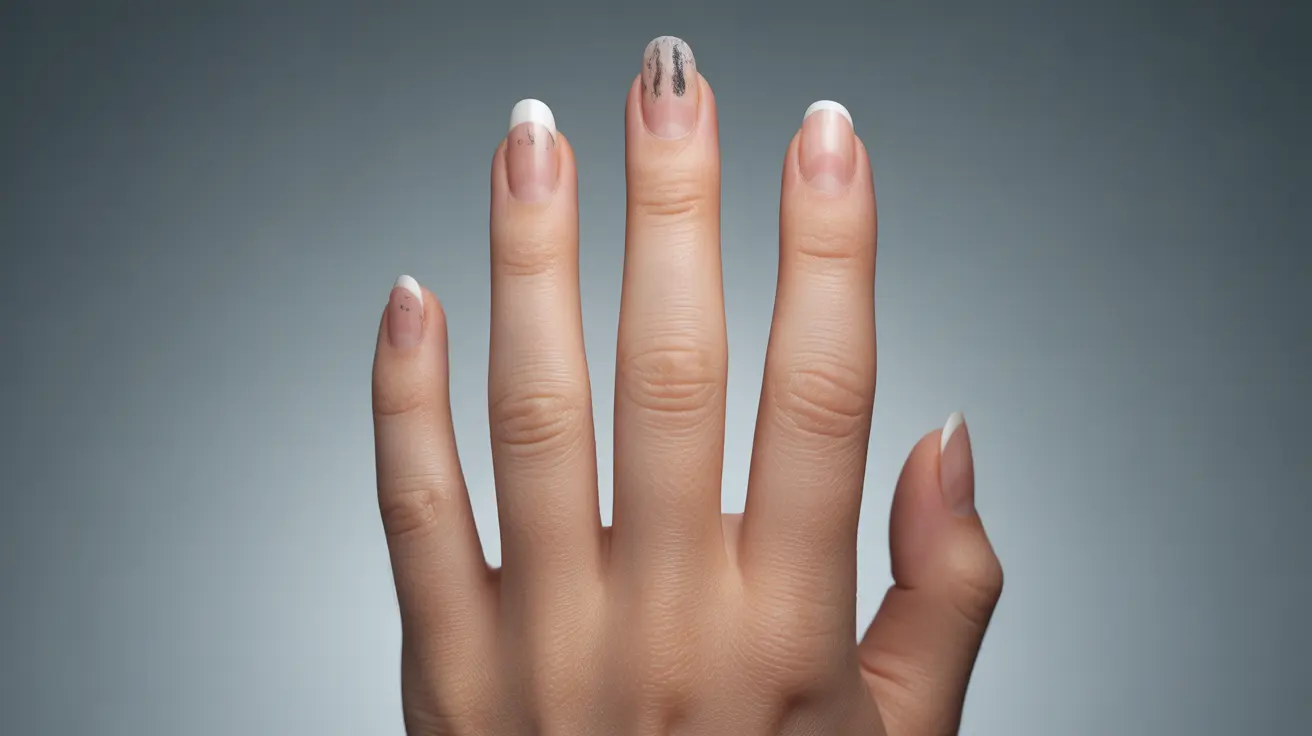Our fingernails are more than just protective coverings at the tips of our fingers—they're powerful diagnostic tools that can reveal critical insights about our overall health. From subtle color changes to unexpected texture variations, nail abnormalities can be important early warning signs of underlying medical conditions that require attention.
Understanding these nail health indicators can help individuals recognize potential health issues early, potentially preventing more serious complications and promoting proactive medical care. This comprehensive guide explores the most significant nail changes that should never be ignored.
Understanding Nail Abnormalities and Their Health Significance
Fingernails undergo various changes throughout our lives, but some transformations are more than just cosmetic. Specific nail conditions can signal systemic health problems, ranging from nutritional deficiencies to serious organ disorders. By learning to recognize these changes, you can become more attuned to your body's subtle health signals.
Nail Pitting: More Than Skin Deep
Nail pitting appears as small, rounded depressions or tiny notches in the nail surface. While seemingly minor, these tiny indentations can be significant indicators of underlying health conditions. They are particularly common in individuals with autoimmune disorders such as psoriasis, eczema, and alopecia areata.
Clubbed Fingernails: A Potential Cardiovascular Warning
Nail clubbing, characterized by enlarged fingertips and downward-curving nails, develops gradually and can be a crucial indicator of serious health issues. This condition might signal low blood oxygen levels, potential lung diseases, heart problems, liver cirrhosis, or gastrointestinal disorders.
Nail Discoloration and Structural Changes
Spoon-Shaped Nails: An Iron Deficiency Indicator
Koilonychia, or spoon nails, occur when nails become unusually soft and curve upward at the edges, resembling a spoon. This distinctive change is often linked to iron deficiency anemia and can sometimes indicate hemochromatosis, a liver disorder causing excessive iron absorption.
Terry's Nails: Silent Signals of Internal Health
Terry's nails present as predominantly white nails with a narrow pink or red band at the tip. While this can be a natural part of aging, it might also signify underlying health conditions like liver disease, congestive heart failure, or diabetes.
Nail Growth Interruptions and Their Meanings
Beau's Lines: Temporary Health Disruptions
Horizontal grooves or lines across the nail, known as Beau's lines, indicate temporary interruptions in nail growth. These can result from various factors including severe infections, uncontrolled diabetes, high fever illnesses, zinc deficiency, or side effects from medications like chemotherapy.
Nail Separation: When Nails Tell a Larger Story
Onycholysis, or nail separation, occurs when nails become loose and detach from the nail bed, often changing color to white, yellow, or green. This condition can result from injuries, infections, medication reactions, thyroid disorders, or skin conditions like psoriasis.
Yellow Nail Syndrome: A Complex Condition
Yellow nail syndrome is characterized by nails that thicken, grow slowly, turn yellow, and may partially detach from the nail bed. This distinctive condition can be a potential indicator of underlying lung diseases like chronic bronchitis or lymphedema, a condition causing limb swelling.
Frequently Asked Questions
What causes fingernails to curl down at the tips, and what health issues might it indicate?
Fingernails curling down at the tips (clubbing) can indicate serious health conditions such as lung diseases, heart problems, liver disorders, or gastrointestinal issues. It often develops slowly and suggests reduced oxygen levels or chronic systemic inflammation.
How does diabetes affect the appearance of fingernails and toenails?
Diabetes can cause multiple nail changes, including thickening, discoloration, and increased susceptibility to fungal infections. Beau's lines and slower nail growth are common, and individuals with diabetes should monitor their nail health closely as part of comprehensive medical care.
What are the symptoms of yellow nail syndrome, and how is it treated?
Yellow nail syndrome symptoms include yellowing nails, slow nail growth, nail thickening, and potential detachment. Treatment focuses on addressing underlying conditions like lung diseases or lymphedema, often involving targeted medical interventions and potential supportive therapies.
Can nail abnormalities like pitting or clubbing be reversed, and what treatments are effective?
Nail abnormalities' reversibility depends on the underlying cause. Some conditions can be improved by treating the root health issue, such as managing autoimmune disorders, correcting nutritional deficiencies, or controlling systemic diseases like diabetes.
How can changes in nail health, such as discoloration or thickening, be managed or prevented in people with diabetes?
People with diabetes can manage nail health by maintaining strict blood sugar control, practicing good foot and hand hygiene, wearing properly fitting shoes, regularly examining nails, and consulting healthcare professionals at the first sign of changes.




